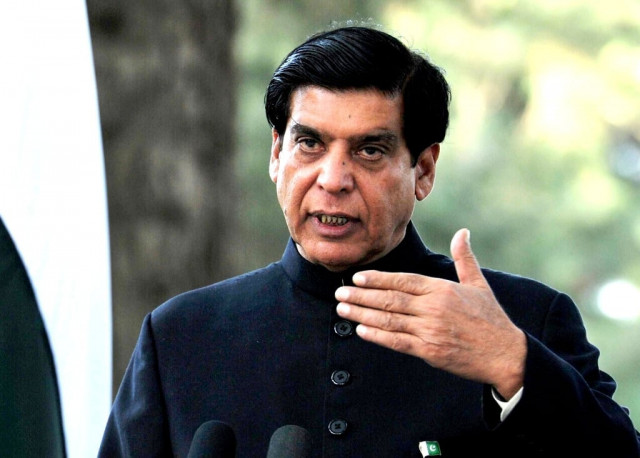Developing-8 Summit: PM Ashraf makes gaffes in opening speech
Makes incorrect assertions about trade agreement, credit rating.

While it may not be quite as legendary as “load-shedding will end by December (2009),” Prime Minister Raja Pervaiz Ashraf on Tuesday made a couple of embarrassing faux pas in his speech at the Developing-8 (D-8) Summit.
The premier first claimed that the Preferential Trade Agreement (PTA) “has entered into force” and then that Pakistan’s credit rating has improved in the last few years.
“It is heartening to note that the Preferential Trade Agreement has entered into force. This is a significant milestone towards economic integration among the D-8,” Prime Minister Ashraf said in his opening remarks. He went on to add that effective implementation of the agreement will help achieve intra-D-8 trade target of $500 billion by 2018.
His remark came just 15 minutes after Chairman of the D-8 Federation of Chambers and Commerce and Industries Dr Herbert Ademola of Nigeria lamented that the “implementation of PTA is still pending.”
Ademola stressed there was a need to promote the D-8 bloc at the international level to make it more competitive.
The incorrect statement, however, may not entirely be the premier’s fault. The PM Secretariat’s Economic Wing and Ashraf’s speech writers could also have overlooked the slip.
The D-8 group was established in 1997, upon an initiative of Turkey, to promote development cooperation among Bangladesh, Egypt, Indonesia, Iran, Malaysia, Nigeria, Pakistan and Turkey.
Since its inception, trade volume of the member countries has increased from $433 billion in 1997 to $1.73 trillion in 2011. Intra-D-8 trade, however, stood at a modest $130 billion in 2011, just 7.5% of the total trade of the D-8 bloc – implying that barriers still hinder trade amongst member countries.
After the opening ceremony of the D-8 Business Forum concluded, Pakistan’s Commerce Secretary Munir Qureshi told journalists that the PTA has not entered into force as negotiations on finalising the list of goods are still ongoing.
Qureshi said the PTA has been ratified by member countries, but when asked whether all the countries had ratified the treaty he said he was not sure.
So far, six member countries: Indonesia, Iran, Malaysia, Nigeria, Pakistan and Turkey, have ratified the agreement. Bangladesh and Egypt, however, are reluctant to ratify the treaty signed in 2006.
Egypt is demanding a 50% value addition, while the Bangladesh Tariff Commission has advised the country not to ratify the treaty saying it will not help boost the country’s exports by much.
In another incorrect assertion during his speech, Prime Minister Raja Ashraf maintained that “Pakistan’s credit rating in international capital markets has improved in the last few years.”
In July this year, Moody’s downgraded Pakistan from ‘Baa’ to ‘Caa’ – the country’s lowest ever since 1998.
According to a UAE-based investment banker Ali Wahab, Pakistan currently does not appear to have a proper plan to tap credit markets in the form of bonds/sukuk issues, or approaching multilateral institutions including the International Monetary Fund. This, Wahab said, makes the country prone to possible downgrades.
Published in The Express Tribune, November 21st, 2012.



















COMMENTS
Comments are moderated and generally will be posted if they are on-topic and not abusive.
For more information, please see our Comments FAQ